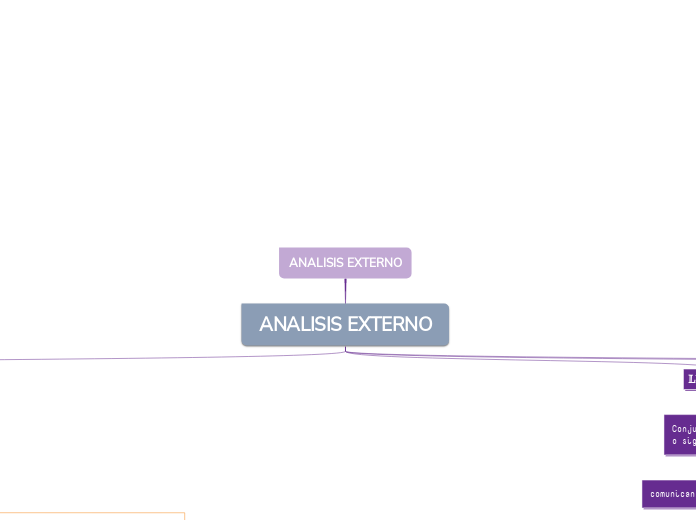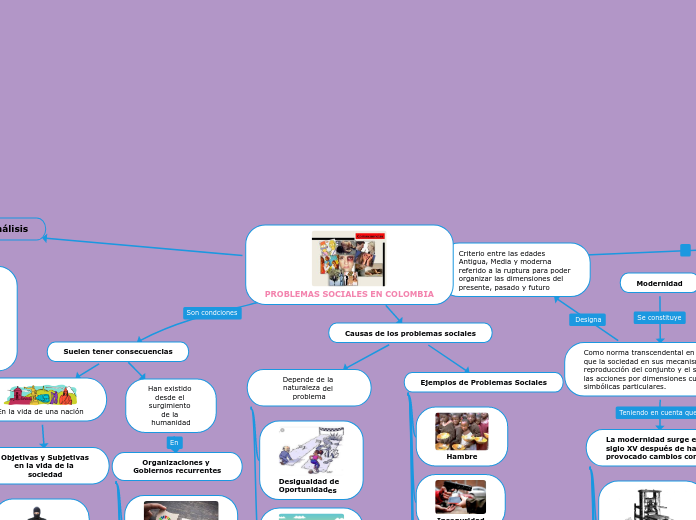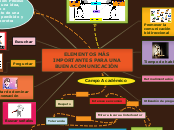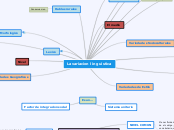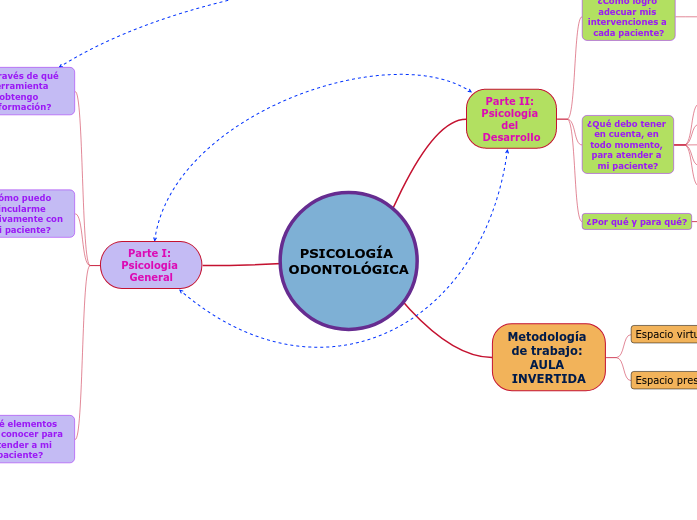ANALISIS EXTERNO
Type in the name of the multiple-perspectives text.
Example: Bridge to Terabithia by Katherine Paterson
Identify an important issue from the text that is being presented from different angles. Type it in.
Example: Jesse's drawing talent.
ANALISIS SOCIO CULTURA
Decide on the fourth point of view
Type in the name of the last character whose perspective on the issue you are going to present.
Example: Leslie Burke, Jesse's new next-door neighbor, and best friend.
CULTURA
composición de palabras especificas, determinan su sentido general.
conjunto de actividades humanas
formas de pensar y vivir
ciencia, arte, industria, derecho, religión, moral, moda
es una serie de conceptos o ideas
se transmiten socialmente
SOCIEDAD
grupo de personas
comparten características
LENGUA
Whose character does the third point of view belong to?
Type in his/her name.
Example: Mr. Aarons, Jesse's father.
HABLA
es la expresión individual de la lengua
TIPOS DE HABLA
norma
dialecto
caló
jerga
argot
lenguaje o conjunto de signos lingüísticos
What does the character think, say or do that suggests their perspective on the issue?
Type in a quote and try to maintain the citation format.
Example: 'He would like to show his drawings to his dad, but he didn't dare. (...) He'd thought his dad would be pleased. He wasn't. What are they teaching in that damn school? he had asked.' (Paterson, 2.8)
son propios de un pueblo o comunidad
cada hablante conoce el código de su lengua
lo emplea para comunicarse entre si
LENGUAJE
Decide on the second point of view
Name the character (it can either be the main character or one of the supporting characters) whose point of view you are presenting.
Example: Miss Edmunds, Jesse's music teacher.
Conjunto de señales o signos
Type in a quote that points out the character's position about the issue.
Try to follow a citation format: author's name, chapter, and page.
Example: 'She said he was unusually talented, and she hoped he wouldn't let anything discourage him.' (Paterson, 2. 8)
comunican o reflexionar algo
How is the viewpoint introduced in the story?
Choose an answer:
First person point of viewSecond person point of viewThird person point of viewOmniscient point of view
tipos de lenguaje
oral y escrito
es al mismo tiempo acústico y visual
se forman los signos lingüístico
palabras
visual
por medio de:
signos
señales
acústico
por medio de los sonidos
ADQUISICIÓN DEL LENGUAJE
CHOMSKY
gramática universal innata
SKINNER
conocido principio
la imitación y reforzamiento
el lenguaje se desarrolla por etapas
etapa (||)
telegráfico
biverbal
etapa (|)
mono verbal
balbuceo
formado por:
sintaxis
semántica
gramática
fonema
INTERACCIÓN
Decide on the first point of view you are going to present.
Type in the name of the character (it can either be the main character or one of the supporting characters) whose point of view belongs to.
Example: Jesse Oliver Aarons, Jr., the main character of the novel, a fifth-grader living in a rural Southern area.
COMUNICACIÓN
Point of view
Type in a relevant quote that highlights the character's point of view. Try to follow a citation format: author's name, chapter, and page.
Example: I can't get the poetry of the trees,' he said. She nodded. Don't worry,' she said. You will someday. He believed her.' (Paterson, 4. 24)
TECNICAS DE COMUNICACIÓN EFIAZ
(|V)
aspectos que mejoran la comunicación
tener comunicación no verbal
ser conciso
evitar generalizaciones
evitar la negatividad
ser específico
no hablar del pasado
discutir temas de uno en uno
habla de lo que se hace
(|||)
habilidades para la escucha activa
resumir
expresiones de aclaración
expresiones de resumen
emitir palabras de cumplido
parafrasear, según lo que entendí del hablante
mostrar empatía
(||)
elementos a evitar
durante la escucha activa:
no rechazar lo q la otra persona siente
no ofrecer ayuda prematura
no contraargumentar
no contar cosas de nosotros
no interrumpir al hablante
no juzgar
no distraernos
(|)
escucha activa
disposición psicologica
observar al otro
utilizar:
comunicación verbal
comunicación no verbal
TIPOS DE COMUNICACIÓN
Verbal
se expresa de 2 maneras:
oral o escrita
10% de la comunicación
No verbal o kinésica
TENEMOS:
lenguaje icónico
código particulares o secretos
código semiuniversal
código universal
código morse
se expresa de varias maneras:
sonidos
90% de la comunicación
movimiento de brazos y manos
postura y la distancia corporal
gestos faciales
contacto visual
lenguaje corporal:
Un individuo establece:
How is the viewpoint introduced in the story?
Choose an answer:
First person point of view - using the personal pronouns 'I' or 'we'Second person point of view - using the personal pronoun 'you'Third person point of view - using the third-person pronouns 'he', 'she' and 'they'Omniscient point of view - an all-seeing observer tells the story
contacto con otro
y se trasmite información
ELEMENTOS:
Contexto
Código
Canal
Mensaje
Receptor
Emisor
intercambio de energía
Type in a relevant quote that highlights the character's point of view towards
ANALISIS EXTERNO.
Try following a citation format: author's name, chapter, and page.
Example: 'Jesse drew the way some people drank whiskey. (...) Lord, he loved to draw. (...) When he was in first grade, he told his father that he wanted to be an artist when he grew up.' (Paterson, 2. 7)
entre:
What type of narration introduces the viewpoint?
Choose an answer:
First person point of view - using the personal pronouns 'I' or 'we'Second person point of view - using the personal pronoun 'you'Third person point of view - using the third-person pronouns 'he', 'she' and 'they'Omniscient point of view - an all-seeing observer tells the story
personas
objetos
